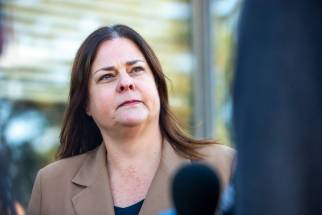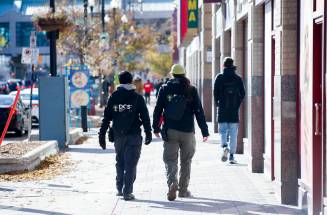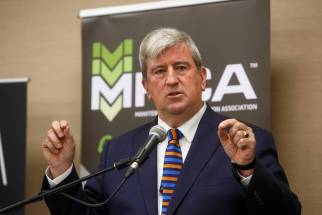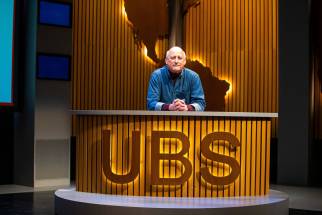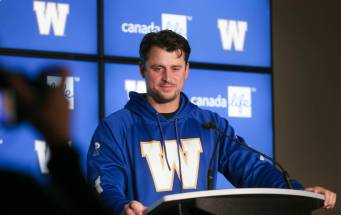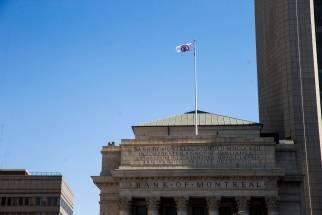Honesty not Murray’s best campaign policy Former mayor makes grandiose promises to improve… everything, but has no real plan to pay for them
Read this article for free:
or
Already have an account? Log in here »
To continue reading, please subscribe:
Monthly Digital Subscription
$0 for the first 4 weeks*
- Enjoy unlimited reading on winnipegfreepress.com
- Read the E-Edition, our digital replica newspaper
- Access News Break, our award-winning app
- Play interactive puzzles
*No charge for 4 weeks then price increases to the regular rate of $19.00 plus GST every four weeks. Offer available to new and qualified returning subscribers only. Cancel any time.
Monthly Digital Subscription
$4.75/week*
- Enjoy unlimited reading on winnipegfreepress.com
- Read the E-Edition, our digital replica newspaper
- Access News Break, our award-winning app
- Play interactive puzzles
*Billed as $19 plus GST every four weeks. Cancel any time.
To continue reading, please subscribe:
Add Free Press access to your Brandon Sun subscription for only an additional
$1 for the first 4 weeks*
*Your next subscription payment will increase by $1.00 and you will be charged $16.99 plus GST for four weeks. After four weeks, your payment will increase to $23.99 plus GST every four weeks.
Read unlimited articles for free today:
or
Already have an account? Log in here »
Hey there, time traveller!
This article was published 18/10/2022 (1146 days ago), so information in it may no longer be current.
With a week left in Winnipeg’s civic election campaign, the lead candidate in the race for mayor, Glen Murray, still hasn’t revealed how he would pay for the millions he’s pledged in new spending. Instead, he plans to ask the provincial government for a share of its retail sales tax — an old idea that has been rejected by successive provincial governments, NDP and Tory, and is unlikely to be granted in the future. That’s not a financial plan, that’s wishful thinking.
Murray has promised a long list of new spending initiatives during the election campaign, including increasing the frequency of transit buses by 50 per cent, funding for seniors housing, boosting resources for bylaw inspections, expanding library hours, launching a new tree funding program and improving transit safety. He has not costed out his pledges and, more importantly, has not said how he would pay for them. Murray is not being honest with Winnipeg voters.
Two other leading mayoral candidates, Shaun Loney and Scott Gillingham, have costed out their platforms and have shown how they would pay for them. Loney is proposing a 3.7 per cent property tax increase and Gillingham a 3.5 per cent hike, plus a one-time, $1.50-per-foot increase on frontage levies. Mayoral candidate Kevin Klein has criticized council for raising taxes, but said he would still increase them in 2023 by 2.33 per cent.
MIKE DEAL / FREE PRESS FILES Glen Murray has not costed out his pledges and, more importantly, has not said how he would pay for them.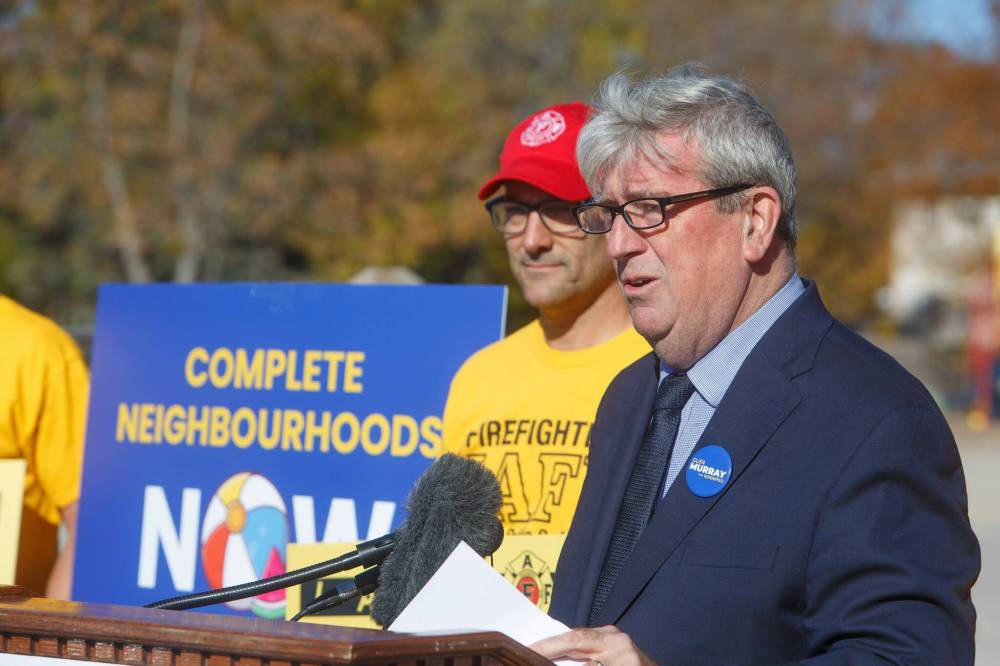
There are two main reasons why Murray hasn’t come clean on how he plans to pay for his election pledges. If he proposes a property tax increase, it would be an admission that cutting property taxes by six per cent when he was mayor of Winnipeg between 1998 and 2004 was a mistake.
Those tax cuts are widely seen as one of the main reasons the city’s infrastructure deficit, estimated at $6.9 billion, is as high as it is. The other reason Murray won’t release a financial plan is he’s trying to distinguish himself from his competitors: he wants to be seen as the only leading candidate who won’t raise taxes, even though he hasn’t promised that explicitly.
It’s political deception, which Murray is very good at.
He’s been using the same deception around the trouble he got himself into at the Pembina Institute, a clean-energy think tank in Calgary where he worked as executive director in 2017-18. According to a CBC News investigative report last month, Murray was dismissed from his job and accused of multiple transgressions while employed there.
Murray did not misspeak. The admissions were recited from a carefully prepared statement that was later sent out to media.
After the story aired, he admitted in a written statement that changes in his personal life affected his job performance and that his management style clouded his judgment. A week later he said he “misspoke,” claiming he did not let his personal life interfere with his job.
“If I misspoke (initially) I apologize, but I get asked a lot of questions in a day. I hope that’s quite clear,” he said.
Murray’s admission had nothing to do with being asked questions. He knows that. When he read his statement on Sept. 29 about how his personal life interfered with his job, it was not in response to questions from reporters, or anyone else. He called a news conference, read a statement and refused to take questions from reporters. He did not misspeak. The admissions were recited from a carefully prepared statement that was later sent out to media (with no corrections or clarifications).
MIKE DEAL / FREE PRESS FILES The other reason Murray won’t release a financial plan is he’s trying to distinguish himself from his competitors: he wants to be seen as the only leading candidate who won’t raise taxes, even though he hasn’t promised that explicitly.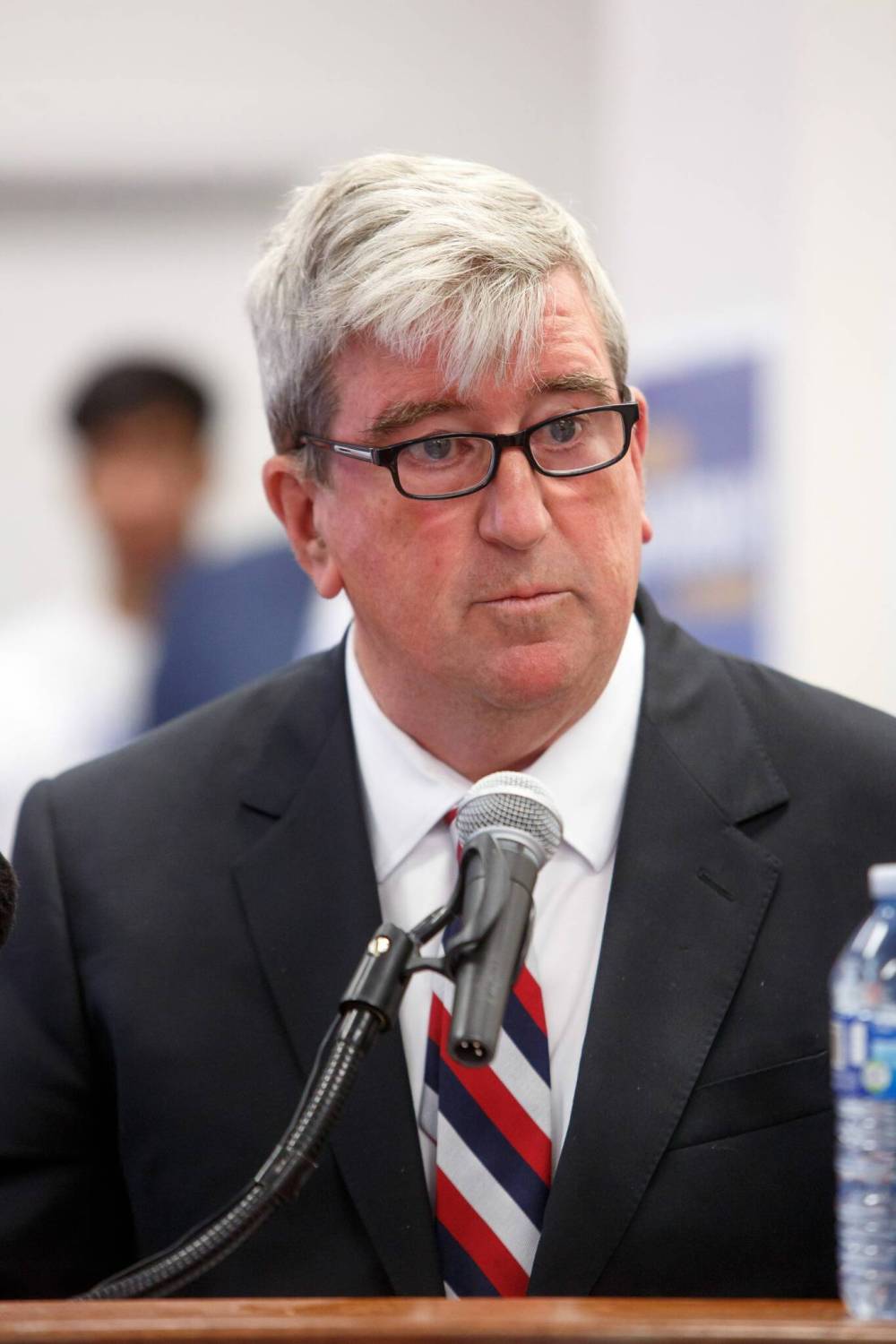
Candidates in elections have an obligation to be clear about their campaign promises, including how much their pledges will cost and how they will pay for them. The fact Murray is refusing to do so is problematic.
Most economists and political observers agree municipal governments need growth revenues, such as a sales tax, to fund expensive infrastructure. That debate has been going on for decades. It’s not new.
Not surprisingly, the province has been loath to share any tax points with the city, preferring instead to get political credit for the annual grants it provides. That’s unlikely to change any time soon. If it does, great. In the meantime, the city has to decide how it plans to finance its operating and capital budgets. That means those running for mayor should be open and honest — and specific — about how they plan to pay for new spending proposals.
Given Murray’s track record, it’s not surprising he has refused to do so.
tom.brodbeck@freepress.mb.ca

Tom has been covering Manitoba politics since the early 1990s and joined the Winnipeg Free Press news team in 2019.
Our newsroom depends on a growing audience of readers to power our journalism. If you are not a paid reader, please consider becoming a subscriber.
Our newsroom depends on its audience of readers to power our journalism. Thank you for your support.




